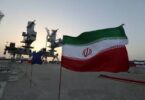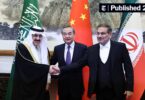The industrial base of the country which started shrinking in the last PML-N government has gained momentum in present government. In the government interest rates was extremely low and manufacturing sector was getting tax concessions despite the objections of IMF but the stagnation was caused by high electricity tariff, lack of skill development and non-facilitation of induction of latest technologies and their indegenisation. It was because of high tariffs of energy inputs, technological stagnation, rising cost of imported raw material that 40 percent of textile industry was shut down and shifted to Bangladesh by Pakistani entrepreneurs in the pursuit of low electricity tariff, skilled workers, and application of new technologies at affordable cost.
Like the previous government the incumbent one also seems to be devoid of vision to improve the business environment. The economists who were not in favour of rushing the harsh stabalisation measures in one go had to quit the economic advisory council of the Prime Minister. In the present government, the economic environment has become worse because of harsh monetary and fiscal measures such as abnormally high interest rate, withdrawal of zero rate tax facility from exports industries, currency devaluation by free float exchange rate and unaffordable electricity tariff which is irrationally being jacked up month on month basis. Such like IMF shock therapy for forstabalisation of economy had been abandoned by Russia in 1990s notwithstanding its huge and high-tech industrial base. How can the economy of Pakistan with small industrial base of crude technology bear the losses that are accruing to it due to the implementation of multilateral donor agency economic reforms?
A delegation of Federation of Pakistan Chambers of Commerce and Industry met the Prime Minister on Monday to seek his help for urgent relief to save the industries from large scale closer as a number of industries are running at 40 percent of installed production capacity. But they returned empty hands. The Prime Minster told them that at this point of time it is not possible for the government to lower interest rate, ease tight fiscal policy and withdraw the CNIC condition on sales over Rs.50,000 to customers’ at retail business outlets. There are genuine reasons to implement the stabalisation measures including raise in interest rates, currency devaluation and imports compression of luxury goods. But the government can provide necessary incentives in the shape of lower electricity and gas tariffs, reducing import duty on industrial raw material and machinery for balancing and modernisation of existing industrial units and tax holidays of longer duration for fresh investment.
The problems that business community is facing today are identical to the ones when Nawaz Sharif government left the economy near the verge of bankruptcy in October, 1999 but the team of economic managers of General Musharraf comprising Dr.Salman Shah, Dr.Ashfaq Hassan Khan and others managed to provide a relief and incentive package to business community and achieved the goal of turning around the economy in less than two year. If that unelected government had succeeded to persuade IPPs to lower the price of electricity then why the present elected government feels handicapped to do the same. Faulty power transmission system and gas distribution network are causing technical losses. The twin menace of power and gas theft and default of bills by influential consumers also add to the losses of gas and power companies which are being overcome by regular tariff hike. Such like unwise measures have neither improved the financial health of public utilities in the past nor can it produce the intended results in future. It is because of the worsening economic environment that foreign investment is largely confined to purchase of government securities. Hot money will fly out of the country when interest rate goes down. If the industry and business flourish then government can achieve the tax collection target. Let us hope that necessary corrective measures shall be taken in consultation with trade bodies.






